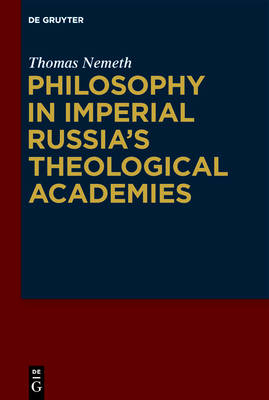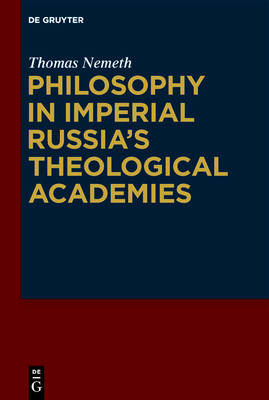
- Retrait gratuit dans votre magasin Club
- 7.000.000 titres dans notre catalogue
- Payer en toute sécurité
- Toujours un magasin près de chez vous
- Retrait gratuit dans votre magasin Club
- 7.000.0000 titres dans notre catalogue
- Payer en toute sécurité
- Toujours un magasin près de chez vous
Description
This work is a historical study of the philosophical writings emerging from Imperial Russia's theological "academies" - Orthodoxy's higher educational institutions that ran parallel to the secular universities - from their inception to the aftermath of the Bolshevik Revolution. Unlike with nineteenth century Russian revolutionary thought, there are few secondary studies of the philosophical works stemming from the academies. These philosophical works focused on ontology and, as such, stand in sharp contrast to the shift toward epistemology in that century as happened in Germany. Another feature of the "academy" philosophies was the continual and explicit attempt to set themselves apart from the pervasive "subjectivism" of Western philosophical systems, although a largely unacknowledged influence persisted. At no time did the academy philosophers look to rational inquiry for more than an assist in understanding their theology. Instead they appealed to tradition and to an alleged direct insight into religious truths at the expense of logic and rational argument. The ultimate result was the pecular historical insularity of their community and concomitantly a subservience to the political state, traits that persist to this day.
Spécifications
Parties prenantes
- Auteur(s) :
- Editeur:
Contenu
- Nombre de pages :
- 359
- Langue:
- Anglais
Caractéristiques
- EAN:
- 9783111002156
- Date de parution :
- 04-07-23
- Format:
- Livre relié
- Format numérique:
- Genaaid
- Dimensions :
- 156 mm x 234 mm
- Poids :
- 730 g

Les avis
Nous publions uniquement les avis qui respectent les conditions requises. Consultez nos conditions pour les avis.






